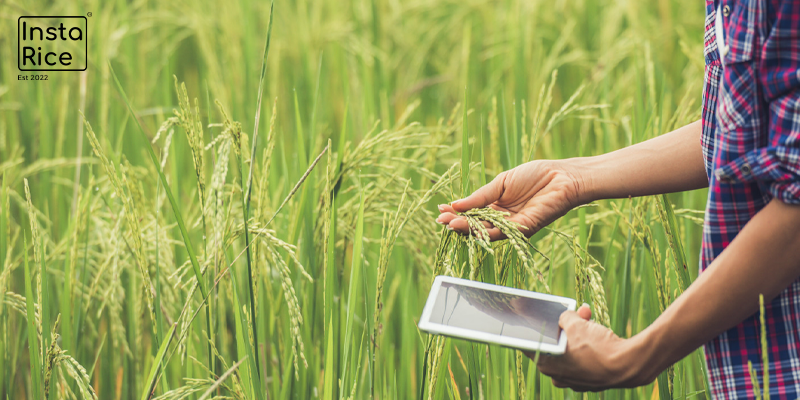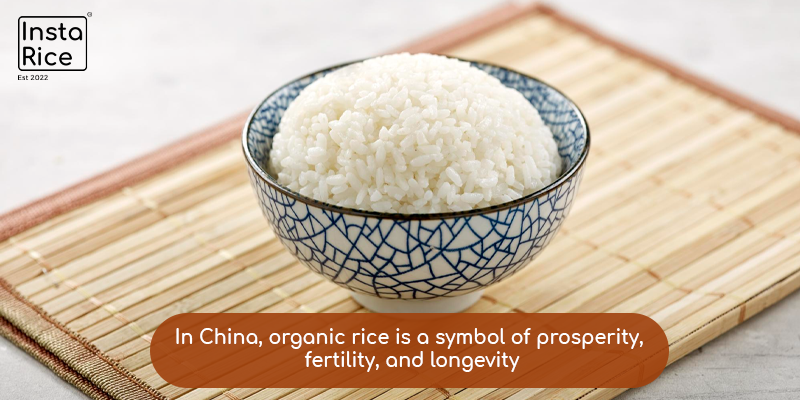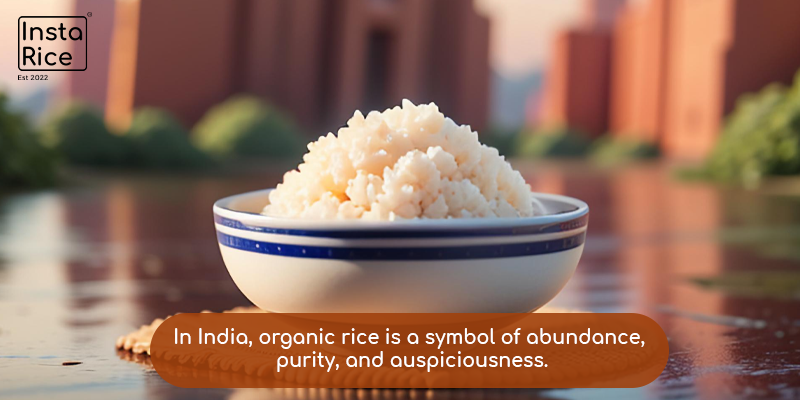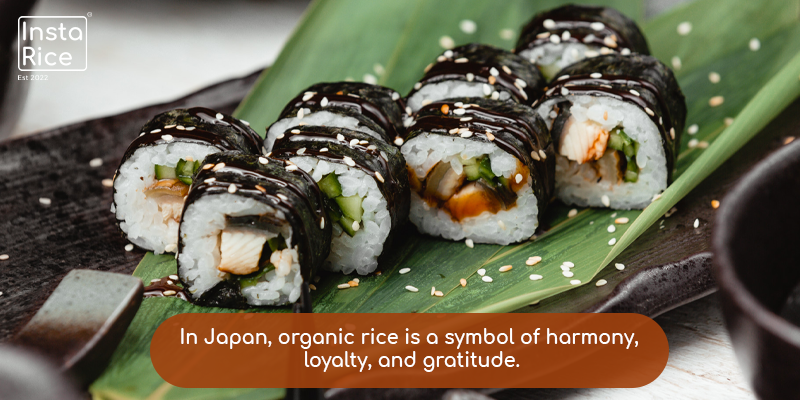All you need to know about Organic Rice and How it Reflects Different Traditions and Values
In this article, we will explore what organic rice is, its health benefits, its difference from regular rice, its importance in modern agriculture, and its cultural and traditional significance.
Related Articles: Benefits of Choosing Organic Rice [link]
Importance of Organic Rice in Modern Agriculture

Organic rice is not only important for your health, but also for modern agriculture. Organic rice can help to improve soil quality, water conservation, and biodiversity. It can also help to reduce greenhouse gas emissions, pollution, and waste.
It can improve soil quality by increasing its organic matter, fertility, and structure. Organic farmers use natural methods such as crop rotation, composting, and green manure to enrich the soil with nutrients and microorganisms. This can help to prevent soil erosion, degradation, and salinization.
It can help to conserve water by reducing its consumption and contamination. Organic farmers use water-efficient irrigation systems and practices to optimize the use of water for their crops. They also avoid using chemicals that can pollute the water sources and affect the aquatic life.
Enhance biodiversity by preserving the genetic diversity and ecological balance of the rice ecosystem. Organic farmers use native and traditional varieties of rice that are adapted to the local conditions and pests. They also encourage the growth of beneficial insects, birds, and animals that can help to control the pests and diseases naturally.
Reduce greenhouse gas emissions by sequestering carbon in the soil and plants. Organic farmers use organic matter and renewable energy sources to fertilize and power their farms. They also avoid using fossil fuels and synthetic chemicals that can emit greenhouse gases and contribute to global warming.
Organic rice can help to reduce pollution and waste by minimizing the use of non-biodegradable materials and packaging. Organic farmers use natural and recyclable materials to store and transport their rice. They also practice waste management and composting to reduce their environmental impact.
Exploring the Cultural and Traditional Significance of Organic Rice
Rice is not only a food, but also a symbol of culture and tradition for many people around the world. Rice has been cultivated for thousands of years in different regions and climates, and has developed various forms and meanings. Rice is also associated with many rituals, ceremonies, and festivals that celebrate life, harvest, and spirituality.
Organic rice is a way of preserving and honoring the cultural and traditional significance of rice. It is grown with respect for nature and its cycles, and with gratitude for its gifts and also prepared with care and love, and shared with family and friends.
Here are some examples of how organic rice reflects different traditions and values:

- In China, organic rice is a symbol of prosperity, fertility, and longevity. It is used in many occasions such as weddings, birthdays, and New Year. It is also offered to ancestors and deities as a sign of respect and reverence. Organic rice is cooked in various ways, such as steamed, fried, or made into dumplings, cakes, or porridge.

- In India, organic rice is a symbol of abundance, purity, and auspiciousness. It is used in many religious ceremonies such as weddings, festivals, and offerings. It is also considered as a sacred food that can nourish the body, mind, and soul. Organic rice is cooked in various ways, such as boiled, baked, or made into biryanis, pilafs, or puddings.

- In Japan, organic rice is a symbol of harmony, loyalty, and gratitude. It is used in many cultural events such as tea ceremonies, sumo matches, and sake making. It is also regarded as a staple food that can provide energy and satisfaction. Organic rice is cooked in various ways, such as sushi, onigiri, or mochi.

- In Thailand, organic rice is a symbol of generosity, hospitality, and happiness. It is used in many social occasions such as parties, festivals, and funerals. It is also considered as a comfort food that can soothe and heal. Organic rice is cooked in various ways, such as fried, sticky, or made into curries, soups, or desserts.
How it Reflects Different Traditions and Values

As you can see, organic rice is more than just a food. It is a reflection of different traditions and values that have been passed down from generation to generation. Organic rice is a way of connecting with nature, culture, and history.
By choosing organic rice, you are not only supporting your health and the environment, but also respecting and appreciating the diversity and richness of human civilization.
Conclusion
In conclusion, organic rice is a healthy and sustainable choice that offers many benefits. It is grown with respect for nature and its cycles, and with gratitude for its gifts. It is also prepared with care and love, and shared with family and friends.
Organic rice reflects different traditions and values around the world. In China, it is a symbol of prosperity, fertility, and longevity. In India, it is a symbol of abundance, purity, and auspiciousness. In Japan, it is a symbol of harmony, loyalty, and gratitude. And in Thailand, it is a symbol of generosity, hospitality, and happiness.
By choosing organic rice, you are not only supporting your health and the environment, but also respecting and appreciating the diversity and richness of human civilization.
